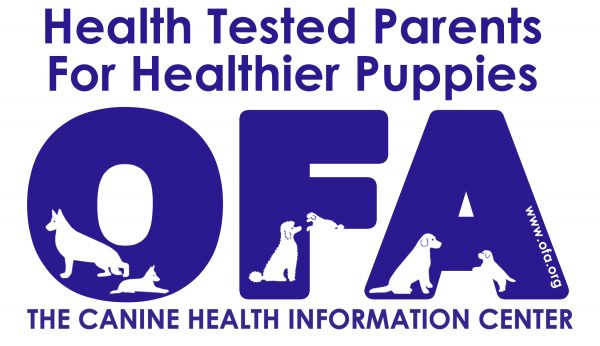Make a Great Start: 50+ Questions to ask a Breeder when considering getting a puppy
(c) Michele Harvey This content may not be redistributed by any individual, business entity or social media page without my express, written permission.
Questions to ask the breeder before you meet or make a deposit (be prepared to walk away at any time if the answers are not satisfactory):
Breeder:
How long has the breeder been involved with this breed? If under 5 years, does the breeder have a mentor specifically for this breed? Do you want to know that the breeder is an expert on your selected breed or has knowledgeable resources to help them make sound judgements and answer any questions that may arise during the life of your pet?
Does the breeder own or breed any other breeds? It takes a lot of effort and time to build ‘expert’ knowledge on a breed and the more experienced the breeder is with a particular breed, the better.
Is the breeder involved with the parent breed club? This is the national breed organization (for poodles, in the U.S. this includes the American Kennel Club (AKC) and the United Kennel Club (UKC). They may belong to a regional club, which should be an affiliate of the national club. This membership and participation demonstrate commitment to the breed.
Has the breeder had any training or education (breed specific, breeding, DNA, diversity, etc.)? AKC University offers a full collection of free opportunities to learn about breeding, whelping, DNA testing and more (there are costs to test on a subject and get ‘certified’). Other opportunities such as BetterBred’s training on canine genetic diversity (partnered with UC Davis) are also beneficial. New research results, technologies, etc. mean that breeders need to stay up to date with continuous education.
Parents:
Does the breeder own both parents? Ask the breeder to describe both parents (e.g. physique, personality, prey drive, intelligence, friendliness, work ethic, biddability, etc.). Are you able to visit and meet them? If not, where is the sire located?
Where do the parents live? Do they live in a kennel or a crate, or are they allowed to roam free in the home? Where do the breeder’s dogs sleep?
What made the breeder decide to pair this sire and dam? What were the goals? What qualities were they trying to reproduce? Were there any characteristics they were trying to breed away from?
Have the parents or other ancestors had any health issues common or uncommon in the breed? (For example, in standard poodles – any allergies to processed chicken, environmental allergies, ear infections, etc?)
Are both parents AKC registered and will the puppies be registered/registerable? Ask to see copies of the papers and pedigrees. Will the pup come with limited (no breeding rights a.k.a. “pet” only) or full registration (future puppies bred from this dog can also be registered)? You can research data on akc.org to verify pedigree, championships, etc. United Kennel Club (UKC) and Canadian Kennel Club (CKC) are additional registries that may be acceptable to you. Continental Kennel Club (CKC) is NOT the same as AKC and Canadian KC. Continental KC should not be considered as verification that the parents or puppies’ pedigree is accurate or that any of them meet the ‘standards’ of the breed (published by the national breed club).
Have the parents been involved in showing or competing and do they hold any titles? Even if you don’t plan to show your dog, you probably still want it to have proper structure and coat for the breed. This is a very important indicator that the dog will be able to do what it was bred for and that the breeder is dedicated to the breed for the long term. Only those dogs who have earned titles in conformation have been proven to uphold the standard for the breed (conform to the standard set by the national breed club). Why is this so important, when you just want a ‘pet’? Because body structure has purpose – it is the foundation for everything else. If the dog does not have the proper structure for the breed, bone, joint and other musculoskeletal issues may present, especially as the dog ages.
You may be interested in other titles or certifications as well, or demonstrated versatility. For example, if the parents have earned certification as therapy dogs, it may indicate that the pups will have balanced temperaments. Or you may be interested in a dog sport like agility, so the parents’ success may be indicative that some pups will have an acuity for a sport.
How old are the sire and dam and how many litters has the dam produced? Note: what is important to you? For example, in my general (not breed-specific) opinion, parents should be at least 2 years of age (although 3-year-olds tend to be more mature and better mothers), should produce one litter per calendar year and should be no more than six years old. For me, this means an average of three litters and a maximum of four litters per female because my dogs are family members and I want them to have full, enriched lives involved in the activities they enjoy.
Health Testing:
Are both of the puppies’ parents CHIC certified by OFA? Ask for copies of the results – do your research in advance, the appropriate tests are breed specific (you can verify which tests by breed are recommended on ofa.org). You may also search the dog’s results on ofa.org (but they may only be visible if the owner shares all of their results publicly). Has additional testing been done? Is it important to you that all tests are reported publicly through OFA?
Have the parents been DNA tested and cleared for the common breed diseases? Ask for copies of the results – do your research in advance, know which tests are recommended for the breed (you can look for this information on sites such as https://www.vgl.ucdavis.edu/services/dog.php).
Please note that a carrier means different things for different diseases. In some cases, a carrier will never be affected by that particular disease but with some diseases a dog with a single copy of the gene may have the potential of developing the disease. Recessive carriers should not be culled from breeding if everything else is good (conformation, temperament, and other health tests) or we will limit the gene pool and create more health issues in the future.
What is the coefficient of inbreeding or have they been tested for canine diversity (if available for your breed)? Check out the info at https://www.vgl.ucdavis.edu/services/dog/CanineGeneticDiversity.php.


Specifically for Puppy Buyers:
What requirements does the breeder have for potential purchasers? A reputable breeder will question potential purchasers on many things such as their home environment, activities, and needs, as well as references such as veterinarian, grooming/boarding contacts to ‘qualify’ buyers and to ensure they match the BEST pup in temperament, activity/energy level, color & size preference, etc. to each buyer. If a breeder lets the buyer pick out their own pet, they are doing a disservice to both their pups and buyers, and may inadvertently set them up for failure.
Ask the breeder to describe the breed’s grooming needs (what needs to be done, how often, what products does the breeder recommend).
Ask if you can talk to past puppy purchasers and the breeder’s veterinarian. (Separate list of questions)
Ask to see the puppy contract. Review the details and ask questions. A good breeder will not mind answering your questions and clarifying why certain information/wording is in their contract.
Is there a spay/neuter requirement and by what age? Note: current research shows that growth plates in canine bones do not close until approximately 12-15 months of age and gonadotrophin hormones are necessary for the body to do this at the right time.
What happens if you cannot pick up your puppy at the planned date? Is there a boarding fee? Can you move to a later litter? Can you get your deposit back?
Has the breeder ever turned down a sale? Listen to the response – what is said and what is not said.

About the Puppies:
What is the breeder’s health guarantee? Reputable breeders will provide at least a one-year health guarantee and will refund your monies if the dog has a congenital, life-altering disorder (whether you return the dog or not).
What type of contact/support does the breeder offer and for how long? Reputable breeders dedicated to the breed will be available to you for the life of the pup.
How does the breeder socialize their puppies? Are any specific puppy rearing protocols used? Puppy Culture is a great, all-inclusive program for raising well socialized, balanced, and confident pups. Avidog is another respected program. Please note that experienced breeders may have success using their own program, a different program, or a combination of programs, but Puppy Culture and Avidog are highly recognized and esteemed today.
At what age can puppies go home? Note: some states regulate this age and most are at a minimum of 8 weeks. However, you may benefit from the breeder keeping the pups to 10 weeks for thorough socialization (especially if you don’t have other dogs in your home), to instill bite inhibition, get them through a fear imprinting period in about week 8, and to make housetraining easier on you (at 10 weeks they can hold their bladders longer) – and they may even gain additional basic training.
A special note on hybrids: Just say NO. For example, in the world of standard poodles exists an increasing market interest in ‘unique’ colors. Other breeds have been introduced to bring forward colors that do not naturally occur in the breed such as ‘merle’. After three to five generations, the breeders claim the dogs are purebred poodles. This is a complete falsehood, and more concerning, it introduces health risks into the line. Any breeder who does this should NOT be trusted.
Questions to ask regarding the first meeting:
Ask to see the puppies. With proper precautions, you should be to visit after five weeks of age. However, if you are high risk (e.g. you are exposed to multiple animals – like volunteering at a shelter or visiting a dog park) do not take the risk of bringing anything into their home or kennel. If a visit is not viable, ask to video chat – good breeders should be willing to show you the puppies’ living area at any time and you can witness puppy personalities during play and interactions with mum.
Be on time! Raising puppies is a careful balance of schedule, flexibility, training and cleaning – lots and lots of cleaning! Wear clean clothes that haven’t been exposed to other animals, stop for bathroom break(s) before arriving, and wash to the elbows. Be respectful and use precautions to protect the safety of the breeder’s family and dogs.
Ask to see the parents. It is okay if they are overwhelmingly excited at your introduction. You are invading their home – their safe space, and they might be excited to meet you or they might be cautious as they don’t know if you are a risk to their pack. Watch for them to calm down over a 5-10 minute period, and only then assess their build and temperaments.
At this point, pups should have received at least one set of vaccinations and multiple wormings (e.g. weeks 2, 4, 6). Ask to see the records. If the breeder administers the vaccinations themselves, check with your vet to see if they will accept this. Some vets will not accept breeder administered vaccinations and will require you to re-vaccinate (overexposure to some vaccines can potentially cause side effects).
If puppies are at least 8 weeks old, ask to see the results of their temperament testing. Temperament testing should be done by a trained individual the puppies do not know.
Questions to ask before picking up puppy:
If relocating out of state, will the breeder supply a health certificate? Who will pay for that vet visit?
When does the puppy need to be vet-checked? When does the puppy need vaccination boosters? Be sure to schedule with your vet in advance.
Will the pups be micro-chipped? Is there a cost to the buyer regarding registering the microchip? If not, you can have this done at the well-puppy visit with your veterinarian.
What food are pups eating? Does the breeder recommend any particular products (treats, chews, toys, etc)? How many days of food will the puppy go home with?
Will the puppy come with a collar and leash?
Has the puppy been leash trained? Has the puppy been crate trained? Has the puppy had any house training or basic obedience training? What commands does the puppy know?
What other items will the puppy go home with (e.g. crate, toys, treats, blanket, potty pad for the drive, waste bags, etc.)?
Are there recommended tools and resources for care of the dog? e.g. shampoo/conditioner products, grooming videos, brushes, combs.
What should you bring when you pick up the pup?
When you go to pick up your puppy, it is highly recommended to have someone with you who can hold the puppy in the back seat. If the puppy is highly stressed in a crate, the car ride and crate could cause long term anxiety issues.
What is the best payment option at pick up? (If you bring a check – personal, cashier’s check or money order – you may not receive registration paperwork until the check clears the bank.)
Questions to ask when picking up the pup:
Have the puppy and all other dogs in the home been well during the last few days?
Does the puppy have a regular daily schedule (waking time, meals, outdoor, exercise, bedtime)?
When did the puppy last have food/water? Have a potty plan and if the pup has not received all three sets of vaccinations do NOT, under any circumstances, let your puppy out on grass where unknown dogs may have been. It only takes one sniff to pick up most communicable diseases.
Make sure you receive a copy of the contract and health guarantee, the pup’s kennel club registration paperwork, veterinarian records, worming records, temperament test results, etc.
Anyone is welcome to use this list for their own puppy search. This content may not be redistributed by any individual, business entity or social media page without my express, written permission. (c) Michele Harvey



